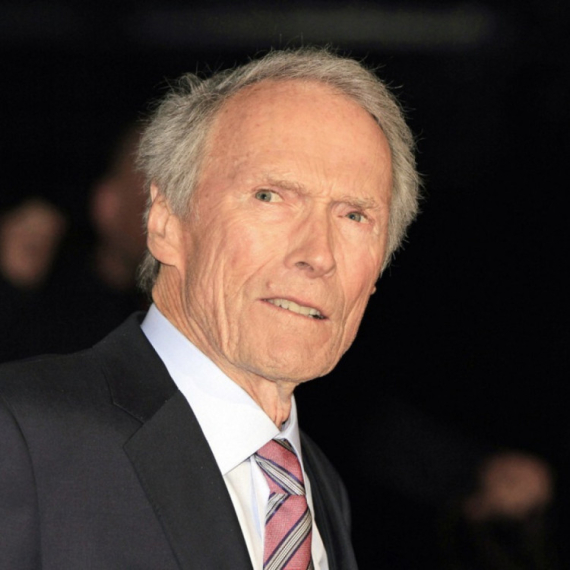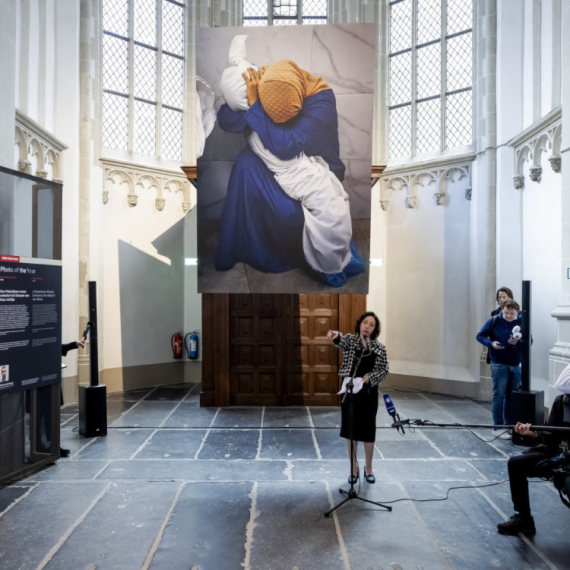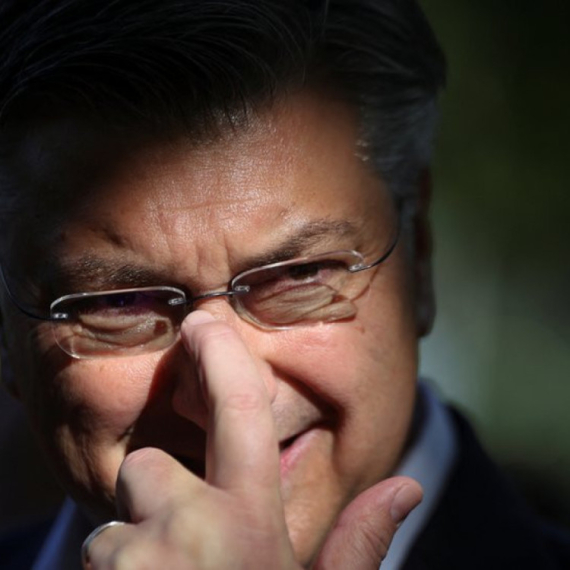"No EU negotiations date before late 2013"
Serbia will not be given a date for the start of EU accession talks before December 2013, and will have until the end of next year to meet Germany's demands.
Saturday, 15.09.2012.
13:18

BELGRADE Serbia will not be given a date for the start of EU accession talks before December 2013, and will have until the end of next year to meet Germany's demands. This is according to an article published by the Belgrade-based daily Danas, which quotes its unnamed sources "from the top of the German ruling coalition". "No EU negotiations date before late 2013" The demands delivered in Belgrade earlier this week by a delegation of German Chancellor Angela Merkel's ruling party, summed up in seven conditions - including for Serbia to "sign a biding statement on good neighborly relations with Pristina" before it starts its negotiates with the EU - does not mean a formal, official recognition of Kosovo, the newspaper was told - "nor will Germany ask for anything of the kind from Serbia in the foreseeable future". These statements are meant to "explain the messages that the CDU/CSU delegation on Thursday in Belgrade sent to the public and politicians (in Serbia)", the daily writes. "Serbia does not have to recognize Kosovo as an independent state, but to accept the situation that the government in Pristina is ruling the Kosovo territory, however, the Serbian authorities do not have to change the Constitution, while the two governments do not have to exchange ambassadors," the report further stated. The daily notes that all parties in the German parliament - except the "far left" - have the same expectations from Serbia, and that "these demands have been known to the political structures in Serbia for at least two years." The article explains that the reason the demands were officially delivered to the Serbian officials and the public were "the May general elections in Serbia and the forming of the new government": "For that reason Germany wished to give enough time to the Serbian government to do something before the European Commission report on Serbia's progress toward the EU, which will be presented on October 10." The newspaper further reports "a firm appraisal" of its CDU/CSU sources that Serbia will not be given a date for the start of membership talks before December 2013, while any claims that this could happen in July were not true: "Belgrade will have the time to meet Germany's expectations from October of this until October of next year." The daily writes that it was told that Germany does not wish to interfere in what Belgrade and Pristina will agree on - including when it comes to the northern, majority Serb part of Kosovo. "We believe that the Ahtisaari plan should first begin to be implemented, and then they should agree on the north and find a creative solution," the article said. When the newspaper asked whether the German party officials were surprised by the change of the ruling coalition in Serbia, it was told that "they did not find it important whether Tomislav Nikolic or Boris Tadic was at the helm", but that what mattered was "the work on fulfilling the demands and implementing what has already been agreed between Belgrade and Pristina". However, according to the article, the unnamed German interlocutors told the daily that the previous government was not sufficiently efficient in doing its homework. (file) "Germany not asking for formal recognition" Germany wants Serbia to give a written guarantee that Serbia and Kosovo will not block each other's accession to international organizations and will have normal relations, said Konrad-Adenauer-Stiftung Director in Serbia Henri Bohnet. We are not asking for formal recognition, Bohne said for the Saturday edition of the Belgrade-based tabloid Blic, recalling that Andreas Schockenhoff, one of the most influential members of the Christian Democratic Union (CDU), said in Belgrade that Germany wanted Serbia to sign "a contract on good-neighborly relations with Kosovo" before it approved the start of Serbia's accession talks with the EU. "This is not some concrete agreement. It is just an example of how the two countries can make a legal and written commitment. The idea is to avoid situations like those between Croatia and Slovenia or Macedonia and Greece. The EU and Germany want to prevent such problems being brought into the EU," said Bohnet. Asked on whose behalf Schockenhoff was speaking, Bohnet said it was on the behalf of the largest parliamentary group in the Bundestag and Angela Merkel's party. This demand is a significant indicator of Germany's position, he added. Schockenhoff clearly said that he discussed these conditions with representatives of the Democratic Party, who were then in power, as far back as two year ago, said Bohnet. Bohnet also said that European Parliament President Martin Schulz also did not ask for any kind of recognition of Kosovo tied to EU accession, and Schockenhoff was just asking for some kind of agreement. Blic Danas
"No EU negotiations date before late 2013"
The demands delivered in Belgrade earlier this week by a delegation of German Chancellor Angela Merkel's ruling party, summed up in seven conditions - including for Serbia to "sign a biding statement on good neighborly relations with Priština" before it starts its negotiates with the EU - does not mean a formal, official recognition of Kosovo, the newspaper was told - "nor will Germany ask for anything of the kind from Serbia in the foreseeable future".These statements are meant to "explain the messages that the CDU/CSU delegation on Thursday in Belgrade sent to the public and politicians (in Serbia)", the daily writes.
"Serbia does not have to recognize Kosovo as an independent state, but to accept the situation that the government in Priština is ruling the Kosovo territory, however, the Serbian authorities do not have to change the Constitution, while the two governments do not have to exchange ambassadors," the report further stated.
The daily notes that all parties in the German parliament - except the "far left" - have the same expectations from Serbia, and that "these demands have been known to the political structures in Serbia for at least two years."
The article explains that the reason the demands were officially delivered to the Serbian officials and the public were "the May general elections in Serbia and the forming of the new government":
"For that reason Germany wished to give enough time to the Serbian government to do something before the European Commission report on Serbia's progress toward the EU, which will be presented on October 10."
The newspaper further reports "a firm appraisal" of its CDU/CSU sources that Serbia will not be given a date for the start of membership talks before December 2013, while any claims that this could happen in July were not true:
"Belgrade will have the time to meet Germany's expectations from October of this until October of next year."
The daily writes that it was told that Germany does not wish to interfere in what Belgrade and Priština will agree on - including when it comes to the northern, majority Serb part of Kosovo.
"We believe that the Ahtisaari plan should first begin to be implemented, and then they should agree on the north and find a creative solution," the article said.
When the newspaper asked whether the German party officials were surprised by the change of the ruling coalition in Serbia, it was told that "they did not find it important whether Tomislav Nikolić or Boris Tadić was at the helm", but that what mattered was "the work on fulfilling the demands and implementing what has already been agreed between Belgrade and Priština".
However, according to the article, the unnamed German interlocutors told the daily that the previous government was not sufficiently efficient in doing its homework.
"Germany not asking for formal recognition"
Germany wants Serbia to give a written guarantee that Serbia and Kosovo will not block each other's accession to international organizations and will have normal relations, said Konrad-Adenauer-Stiftung Director in Serbia Henri Bohnet.We are not asking for formal recognition, Bohne said for the Saturday edition of the Belgrade-based tabloid Blic, recalling that Andreas Schockenhoff, one of the most influential members of the Christian Democratic Union (CDU), said in Belgrade that Germany wanted Serbia to sign "a contract on good-neighborly relations with Kosovo" before it approved the start of Serbia's accession talks with the EU.
"This is not some concrete agreement. It is just an example of how the two countries can make a legal and written commitment. The idea is to avoid situations like those between Croatia and Slovenia or Macedonia and Greece. The EU and Germany want to prevent such problems being brought into the EU," said Bohnet.
Asked on whose behalf Schockenhoff was speaking, Bohnet said it was on the behalf of the largest parliamentary group in the Bundestag and Angela Merkel's party. This demand is a significant indicator of Germany's position, he added.
Schockenhoff clearly said that he discussed these conditions with representatives of the Democratic Party, who were then in power, as far back as two year ago, said Bohnet.
Bohnet also said that European Parliament President Martin Schulz also did not ask for any kind of recognition of Kosovo tied to EU accession, and Schockenhoff was just asking for some kind of agreement.


























































Komentari 21
Pogledaj komentare